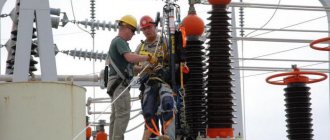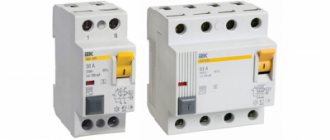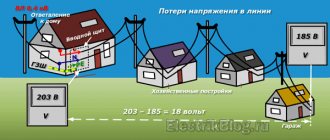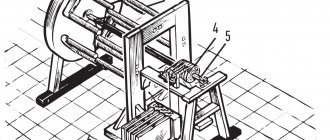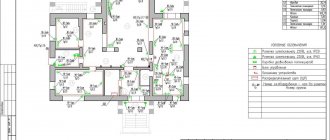Qualification Requirements
Different requirements are put forward for specialists with different categories. So, for example, an employee with the first category may not have a higher technical education. The main thing is that he knows how to use installation work equipment and perform basic tasks. However, he does not have access to more serious objects. But for a second-class worker, having a higher technical education is mandatory. In addition, several months of experience working with electrical equipment is required.
This is necessary so that the electrical engineer has access to work with devices that have a low level of danger. For employees with the third category, there is an additional requirement - at least ten months of work experience and knowledge of how to service high-voltage devices, etc. A fourth-class electrician is already a specialist with a high level of access and experience; he is required to study the structure of systems, be able to use his knowledge in practice and perform repair and maintenance work. An employee with a fifth rank has full access and, among other things, must be able to train subordinates.
General provisions
1.1. An electrical engineer for the maintenance of utility networks belongs to the category of specialists and is directly subordinate to [name of the manager's position].
1.2. An electrical engineer for the maintenance of utility networks is appointed to the position and dismissed from it by order of [position name].
1.3. A person who has a higher professional (technical) education without requirements for work experience or a secondary vocational (technical) education and work experience as a technician of the 1st category for at least three years or in other positions filled is accepted for the position of electrical engineer for the maintenance of utility networks. specialists with secondary vocational (technical) education for at least five years.
1.4. An electrical engineer for the maintenance of utility networks must know:
— laws and other regulatory legal acts of the Russian Federation, methodological and regulatory documents on the maintenance and repair of electrical equipment and electrical networks;
— prospects for the development of the organization;
— fundamentals of the organization’s production technology;
— organizing the organization’s supply of electricity;
— systems for scheduled preventive maintenance and rational operation of electrical equipment and electrical networks;
— technical characteristics, design features, operating modes, operating rules, procedures and methods for planning the operation of electrical equipment and repair work;
— methods for developing energy consumption standards;
— the procedure for drawing up cost estimates for repair work;
— fundamentals of economics, organization of production, labor and management;
— basics of labor legislation;
— environmental protection rules;
— internal labor regulations;
— rules of sanitary and personal hygiene;
— rules and regulations of labor protection, safety and fire protection.
Peculiarities
The main task of an employee in the position of an electrical engineer is to carry out activities related to the design, adjustment and maintenance of electrical networks owned by a commercial or industrial enterprise, as well as the operation of electrical equipment and wiring. This employee is responsible for the efficient use of incoming electricity, and also oversees the strict compliance with safety requirements for all employees of the enterprise. To understand the features of the profession, you first need to understand how an electrical engineer differs from an ordinary electrician and electrician. All of these specialists are associated with electrical network maintenance activities, but there are significant differences between them.
In particular, an electrician is a specialist who makes repairs, maintains and adjusts electrical equipment. In the narrowest sense, this is a professional who maintains home networks. An electrician, unlike an electrician, works in industry, and his activities are related to the maintenance of high- and low-voltage equipment. Both of them work with objects in which the voltage is 1000 volts or more.
An electrical engineer has experience in all of the above areas. His responsibilities include designing, calculating energy-intensive devices and electrical systems, as well as maintaining technical documentation, supporting projects at all stages and monitoring the implementation of work related to the operation and configuration of electrical systems.
The profession of an electrical engineer requires specialized knowledge in areas such as electrical engineering, mathematics, physics, and computer science. Professional training is provided by technical universities; in addition, it would be useful for workers in this field to regularly take specialized courses.
Every person who decides to connect their career with electricians should be prepared for the fact that, sooner or later, problems arise in their work. Therefore, in most cases, experienced highly qualified specialists are hired for this position, who are well versed in all types of power plants and electrical equipment, and know from personal experience all the intricacies of installation, operating rules and compliance with safety measures.
The position of an electrical engineer is a leadership one, therefore all orders of the person holding this position, one way or another related to electrical networks, are considered mandatory for execution by all employees of the enterprise.
Difference between an electrician and an electrical engineer
Essentially, both terms are equivalent, but there are also differences. So, an electrician is a specialist in the repair, maintenance and installation of electrical equipment. In the narrow sense of the word, an electrician is a specialist who repairs and maintains household electrical networks and devices, while an electrician works in industry and can operate low-voltage and high-voltage equipment. In a broader sense, both terms are equivalent and imply work in electrical installations with voltages below 1000 V and above this value, as well as in the maintenance of power lines where high-rise electricians are required.
Power line
An engineer with a specialization as an electrician, in addition to all of the above, can perform design and calculations of energy systems and devices. The responsibilities of an engineer include maintaining technical documentation, monitoring the progress of work and supporting energy projects at all stages.
Qualification requirements.
All about the profession of automated control systems engineer
Electrical engineer (electrical engineer) of the 1st qualification category: higher technical education and work experience as an electrical engineer (electrician) of the 2nd qualification category for at least 3 years.
Electrical engineer (electrical) P qualification category: higher technical education and work experience as an electrical engineer (electrical) for at least 3 years.
Electrical engineer (electrician): higher technical education without a requirement for work experience or secondary specialized education and work experience as a technician for the operation and repair of equipment in the electrical sector of qualification category I for at least 3 years.
ELECTRONICS ENGINEER (ELECTRONICS)
Job responsibilities. Ensures proper technical operation and uninterrupted operation of electronic equipment. Participates in the development of long-term and current plans and schedules of work, maintenance and repair of equipment, measures to improve its operation and increase the efficiency of using electronic equipment. Prepares electronic computers for operation, carries out technical inspection of individual devices and components, controls the parameters and reliability of electronic elements of equipment, conducts test checks in order to timely detect faults, and eliminates them. Performs adjustments of elements and blocks of electronic computers, radio-electronic equipment and individual devices and components. Organizes maintenance of electronic equipment, ensures its working condition, rational use, and carrying out preventive and routine repairs. Takes measures to ensure timely and high-quality performance of repair work in accordance with approved documentation. Monitors the repair and testing of electronic equipment, compliance with operating instructions, and technical care of it. Participates in checking the technical condition of electronic equipment, conducting preventive inspections and routine repairs, accepting it from major repairs, as well as in accepting and mastering newly commissioned electronic equipment. He is studying the possibility of connecting additional external devices to electronic computers in order to expand their technical capabilities and create computer systems. Masters and applies new computer technologies in his work. Keeps records and analyzes indicators of the use of electronic equipment, studies operating modes and operating conditions, develops regulatory materials for the operation and maintenance of electronic equipment. Prepares requests for electronic equipment and spare parts for it, technical documentation for repairs, and work reports. Monitors the timely provision of electronic equipment with spare parts and materials, organizes the storage of radio-electronic equipment.
Must know: regulatory legal acts and other methodological and regulatory materials on the operation and repair of electronic equipment; technical and operational characteristics, design features, purpose and operating modes of equipment, rules for its technical operation; automated information processing technology; formalized programming languages; types of technical storage media; current number systems, ciphers and codes, standard programs and commands; fundamentals of mathematical software and programming; methods for developing long-term and current work plans (schedules) and the procedure for reporting on their implementation; organization of repair services; advanced domestic and foreign experience in the operation and maintenance of electronic equipment; the procedure for drawing up applications for electronic equipment, spare parts, repairs and other technical documentation; fundamentals of economics, organization of labor and production; basics of labor legislation; rules and regulations of labor protection and fire safety.
Date added: 2014-12-26; ;
Necessary requirements for an energy engineer
The job description of an electrical engineer usually includes the following responsibilities:
- Study of regulations, orders, instructions, normative and methodological materials on the operation of energy equipment.
- Organization of energy management.
- Studying the prospects for the technical development of the company.
- Study the technical characteristics, design features, operating modes and operating rules of power equipment.
- Carry out scheduled preventive maintenance and rational operation of equipment.
- Select optimal methods for installation, adjustment, and adjustment of power equipment.
- Install electrical equipment.
- Competently and timely prepare requests for energy resources, materials, equipment, tools, spare parts.
- Follow the rules for submitting faulty equipment for repair.
- Know the basic elements of the organization's production technology.
- Organization of labor not only during operation, but also modernization and repair of power equipment.
- Domestic and foreign experience in the proper operation of power equipment is welcome.
- Be aware of electricity tariffs.
- Clearly know and follow the internal labor rules.
- Have the basics of organizing work in an enterprise and economics.
- Study the basics of labor legislation.
In the absence of an electrical engineer, the job description is performed by a person appointed in the manner established by the employer. He acquires all his duties and rights, and is also responsible for his activities.
Pros and cons of the profession
Tavrida electrician
The most important advantage of this profession is its high demand in the labor market. In addition, thanks to the large salary, the employee will be able to have a good annual income, working even in remote parts of the country, not to mention the capital. The skills and abilities that a professional possesses allow him to earn extra money in his specialty, performing partial tasks and combining work with another type of activity or study.
There are also disadvantages to the profession of an electrical engineer, namely, high responsibility, because everything that this worker does can affect the health and life of both himself and other people. In addition, such employees often have overtime, and they stay overtime to urgently carry out repair work or perform other functions. As for career growth, it all depends on what field he works in and how he improves his skill level. If we consider the vacancies of an electrical engineer, we will notice that such professionals are in demand not only in the construction industry, but also at various manufacturing enterprises.
Assigning categories
The assignment of a category to an engineer is carried out based on the results of certification. Typically, the timing will be set by government agencies, but sometimes large companies or businesses will hire independent panels when they believe one or more workers could improve their skills. Otherwise, the following engineers can count on increased professionalism:
- Category 3 is applied for by a specialist with a higher education and at least 3 years of experience.
- Category 2 is applied for by a specialist who has a higher education and has at least 3 years of experience as a category 3 employee.
- Category 1 is applied for by a specialist who has a higher education and has at least 3 years of experience as a category 2 employee.
Thus, the assignment of a category to an engineer is carried out every three years. Sometimes this time is reduced to 2 years if the specialist worked in difficult conditions or temporarily performed the duties of an employee with higher qualifications. Of course, provided that he coped with his activities perfectly.
Who is it?
In any manufacturing company, an electronics engineer is responsible for performing a variety of tasks, from developing electronic equipment to monitoring its operation. Engineers in this specialization are comprehensively knowledgeable about all the features of electronic equipment and the nature of electrical processes. Electronics engineers are in demand in a variety of fields; this position can be found in the staffing table of manufacturing, scientific, design, trading companies and even in schools.
One of the main responsibilities of an electronics engineer is to develop new products. Most existing electronics firms rely on the expertise of these specialists to bring new products to market and distribute existing ones. These products include gaming rigs, watches, TV receivers and many other types of electrical devices. These professionals are required to have the skills to design electrical system parts for production.
An electronics engineer works closely with other departments in the same company. He passes on his ideas and initiatives to other employees so that they can put them into practice. This means that a person in this position is required to be able to establish effective working contacts - only in this case can he make sure that all projects and initiatives are used in the right direction and in the correct context.
Studying the lists of vacancies, you will notice that the above-mentioned position is often called differently, it can be a developer of electronic equipment, a designer of printed circuit boards, or an electrical engineering developer. It should be noted that at different enterprises different requirements are presented to electronics engineers, various tasks are set and different areas of responsibility are outlined, so it is almost impossible to find two specialists with identical work experience.
About the profession of Electrical Engineer, which can be obtained in St. Petersburg
Bachelor's and Specialist's Degrees13 Master's Degrees8
Universities9
An electrical engineer is involved in the creation of electronic devices and instruments. With the help of electronic devices in various fields of science and technology, complex processes of generation, amplification, conversion, measurement and formation of electrical signals, logical operations and many other processes are carried out. The versatility, speed, accuracy and sensitivity of electronic technology opens up new development opportunities in many branches of science and technology.
Electronic engineer
An electrical engineer is involved in the creation of electronic devices and instruments. With the help of electronic devices in various fields of science and technology, complex processes of generation, amplification, conversion, measurement and formation of electrical signals, logical operations and many other processes are carried out. The versatility, speed, accuracy and sensitivity of electronic technology opens up new development opportunities in many branches of science and technology.
An electronics engineer develops electrical devices. Creating a new device is a complex, multi-stage process. First of all, the engineer receives a technical specification - a document containing the requirements for the device being created. Based on knowledge of mathematics, physics, and chemistry, the engineer mentally embodies the points of this task into a working electronic device. The developer embodies the results of his mental work in an electrical circuit, coordinates it with the manager and checks it on a mock-up - this is a pre-fabricated device from parts, the location of which is not yet final.
After agreeing on the now slightly modified draft diagram and the data obtained from testing the layout, the diagram is drawn in strict accordance with the standards. The engineer must ensure that it is as clear as possible. Then comes the stage of designing the device according to this scheme, the design estimate is made by the electronics engineer himself, and the designer finalizes it.
Type of professional environment according to Holland:
- If an electrical engineer is engaged in research, development in the field of electrical engineering, design of electrical systems, such work belongs to the intellectual type of professional environment
- If an electrical engineer is involved in the repair, operation and maintenance of electrical systems, then such work would be a realistic type of occupational environment.
Expand
Responsibility
An engineer can be held accountable if he performs his duties untimely and poorly. He is also responsible for: compliance with the regulations, rules and charter of the company, not violating the current legislation of the country during the performance of duties and for causing material damage to the organization.
In some cases, he may be held accountable for disclosing confidential information and violating trade secrets. He can be punished for exceeding his powers and using them for personal gain. He is also responsible for providing deliberately incorrect or incomplete information to his management.
Engineers 1st category
A category 1 engineer has many more rights and responsibilities. As his responsibility increases, so does his salary. He may have appropriate employees subordinate to him, the specific specialization of which will be determined by the direction of activity of the engineer and the enterprise.
An engineer of the 1st category will be responsible for:
- Failure to fulfill or improper performance of one’s official obligations. In addition, if the engineer’s subordinates do not fulfill their obligations, the manager will be held responsible.
- Offenses committed during work activities. For example, if safety precautions were not followed during work, the engineer will be held liable. This applies even to those cases where no one was harmed during a TB violation.
- Causing material damage to the enterprise.
Naturally, such a number of obligations is paid off by a high salary, because otherwise no one will want to take on such responsibility.
Responsibilities
At the beginning of their careers, electrical engineers are primarily involved in debugging, repairing, installing and adjusting electrical devices and electrical circuits. The professional standard of these specialists includes the installation and separation of panels in production, warehouse and commercial facilities, the installation of cables and other electrical communications, as well as other electrical installation work.
The position of a leading electrician or site manager requires a higher level of responsibility. A person holding such a position will have to work with energy companies, as well as monitor compliance with labor safety standards. This person has full responsibility for all equipment and devices included in the electrical network of the enterprise.
The highest level of the career ladder, the position of an electrical engineer, includes additional functionality. His job description includes:
- drawing up projects and diagrams for connecting generating electrical units to the DC network;
- connecting each user to the power grid;
- creation of internal and external electrical supply systems;
- supervision of projects and comprehensive supervision of them.
Job Description for Electrical Engineer
I. General provisions
1. An electrical engineer belongs to the “specialists” category.
2. The electrical engineer reports directly to the chief engineer.
3. The appointment and dismissal of an electrical engineer is made by order of the director of the organization on the recommendation of the immediate supervisor.
4. A person with a higher technical education without work experience or a secondary specialized education and at least three years of work experience as a technician in the operation and repair of electrical equipment of qualification category I is appointed to the position of electrical engineer.
5. An electrical engineer in his activities is guided by:
- this job description;
- orders, instructions from management;
- internal labor regulations;
- governing and regulatory acts of the organization;
- orders of the immediate superior;
- legislation of the Russian Federation;
- Charter of the organization;
- rules, methodological materials for the operation and repair of electrical equipment.
6. An electrical engineer must know:
- operational characteristics, operating modes, design, rules for handling electrical equipment;
- methodological, regulatory materials, legal acts, other documents on the operation and repair of electrical installations and electrical equipment;
- technology, organization of repair work;
- measures to prepare and carry out scheduled preventive maintenance of electrical installations;
- standards for handing over electrical equipment for repair and receiving it after it;
- methods of installation, configuration, adjustment of electrical installations;
- best practices for renovation work;
- labor protection standards, fire protection;
- basics of labor legislation.
7. During the absence of an electrical engineer, his responsibilities, rights, and functional duties are assigned to another official appointed in the prescribed manner.
II. Job Responsibilities of an Electrical Engineer
An electrical engineer performs the following job responsibilities:
1. Takes measures for the effective use, regular maintenance, and repair of electrical communications, electrical equipment, and electric motors of the organization.
2. Prepares and submits for approval to the immediate supervisor schedules for inspection, maintenance, and repair of electrical equipment. Organizes their repairs.
3. Contributes to the economical use of electricity to increase production efficiency and fulfill production and marketing tasks.
4. Receives, assembles, tests electrical installations, and transfers them into operation.
5. Participates in the preparation of power supply plans for the organization’s divisions.
6. Participates in the development of applications for the installation of new electrical installations, tools, spare parts, measuring equipment, and protective equipment.
7. Reviews the results of the operation of electrical equipment, electrical installations, electrical networks by structural divisions of the organization.
8. Determines the causes of equipment failure and accidents. Develops measures to prevent and eliminate them.
9. Ensures storage and safety of electrical equipment in compliance with accepted standards of technical operation.
10. Prepares acts for decommissioning of equipment. Submits them to management for approval in the prescribed manner.
11. Collects and summarizes progressive experience in operation, repair of electrical installations, efficient use and saving of electricity.
12. Maintains established documentation. Prepares and submits reports in accordance with the accepted procedure.
13. Determines the causes of high wear and tear of electrical installations.
14. Instructs employees operating electrical installations. Promotes their compliance with labor safety and fire protection rules.
III. Rights
An electrical engineer has the right:
1. Demand that the management of the organization create normal conditions for performing their duties and ensuring safety.
2. Do not begin to exercise authority if there is a danger to health or life.
3. Submit proposals to management to improve the organization’s activities.
4. Act independently, make decisions within your own competence.
5. Contact consultants on issues beyond the competence of an electrical engineer.
6. Receive information about decisions regarding your own work.
7. Inform management about identified shortcomings in the organization’s activities, send proposals for their elimination.
8. Improve your qualifications, participate in educational events.
9. Interact on official issues with departments of the organization.
IV. Responsibility
The electrical engineer is responsible for:
1. Improper performance of one’s official duties.
2. Contents of documentation submitted to management.
3. Causing damage to the organization, its employees, or the state.
4. Consequences of decisions made, one’s own actions.
5. The quality of performance of one’s job duties.
6. Violation of internal labor regulations, labor discipline, fire protection standards.
7. Reliability of information about the operation of the equipment.
8. Violation of the requirements of the organization’s governing documents.
9. Violation of safety regulations.
About the profession of Electrical Engineer, which can be obtained in Tver
Bachelor's and specialty1
Universities1
An electrical engineer is involved in the creation of electronic devices and instruments. With the help of electronic devices in various fields of science and technology, complex processes of generation, amplification, conversion, measurement and formation of electrical signals, logical operations and many other processes are carried out. The versatility, speed, accuracy and sensitivity of electronic technology opens up new development opportunities in many branches of science and technology.
Electronic engineer
An electrical engineer is involved in the creation of electronic devices and instruments. With the help of electronic devices in various fields of science and technology, complex processes of generation, amplification, conversion, measurement and formation of electrical signals, logical operations and many other processes are carried out. The versatility, speed, accuracy and sensitivity of electronic technology opens up new development opportunities in many branches of science and technology.
An electronics engineer develops electrical devices. Creating a new device is a complex, multi-stage process. First of all, the engineer receives a technical specification - a document containing the requirements for the device being created. Based on knowledge of mathematics, physics, and chemistry, the engineer mentally embodies the points of this task into a working electronic device. The developer embodies the results of his mental work in an electrical circuit, coordinates it with the manager and checks it on a mock-up - this is a pre-fabricated device from parts, the location of which is not yet final.
After agreeing on the now slightly modified draft diagram and the data obtained from testing the layout, the diagram is drawn in strict accordance with the standards. The engineer must ensure that it is as clear as possible. Then comes the stage of designing the device according to this scheme, the design estimate is made by the electronics engineer himself, and the designer finalizes it.
Type of professional environment according to Holland:
- If an electrical engineer is engaged in research, development in the field of electrical engineering, design of electrical systems, such work belongs to the intellectual type of professional environment
- If an electrical engineer is involved in the repair, operation and maintenance of electrical systems, then such work would be a realistic type of occupational environment.
Expand
All about the profession of electrical engineer
To work in this profession, a person must understand the basics of electrical engineering and automation, know safety standards and operating rules for electrical installations, be able to read electronic circuits, and also have experience working with electrical equipment.
Identify the causes of failures and accidents during the operation of this equipment, take measures to prevent and eliminate them.
Prepare requests for electronic equipment and spare parts for it, technical documentation for repairs, work reports.
Ensures efficient operation, maintenance and timely repair of electrical networks, general lighting and auxiliary premises, electrical wiring, and electrical equipment.
Brief historical background
As you might guess, the history of the electrical installation profession begins from the moment when electricity became an integral part of our lives. But the very first government bodies that began to control the activities of electricians appeared only in the 1940s. It was this historical period that was marked by rapid industrialization, when electricity finally won “its place in the sun.”
It is worth noting that technological progress today is actively contributing to an increase in demand for technical personnel. Therefore, it is not at all surprising that electricians are included in the list of the most paid professions today, the knowledge and experience of which is in great demand. After all, only an electrician can install complex, high-tech electrical equipment in production and beyond. These professionals can install home wiring, overhead cables, and overhead cables.
In general, the range of work that a modern electrician can perform is expanding every year, as new and very interesting directions in this field of activity emerge. An electrician has a huge responsibility. If such a specialist makes the slightest mistake in his work, this can lead to catastrophic consequences. That is why only attentive people who know how to focus on the work process are accepted into this specialty.
About the profession of Electrical Engineer, which can be obtained in Ulyanovsk
Bachelor's and specialty2
Universities1
An electrical engineer is involved in the creation of electronic devices and instruments. With the help of electronic devices in various fields of science and technology, complex processes of generation, amplification, conversion, measurement and formation of electrical signals, logical operations and many other processes are carried out. The versatility, speed, accuracy and sensitivity of electronic technology opens up new development opportunities in many branches of science and technology.
Electronic engineer
An electrical engineer is involved in the creation of electronic devices and instruments. With the help of electronic devices in various fields of science and technology, complex processes of generation, amplification, conversion, measurement and formation of electrical signals, logical operations and many other processes are carried out. The versatility, speed, accuracy and sensitivity of electronic technology opens up new development opportunities in many branches of science and technology.
An electronics engineer develops electrical devices. Creating a new device is a complex, multi-stage process. First of all, the engineer receives a technical specification - a document containing the requirements for the device being created. Based on knowledge of mathematics, physics, and chemistry, the engineer mentally embodies the points of this task into a working electronic device. The developer embodies the results of his mental work in an electrical circuit, coordinates it with the manager and checks it on a mock-up - this is a pre-fabricated device from parts, the location of which is not yet final.
After agreeing on the now slightly modified draft diagram and the data obtained from testing the layout, the diagram is drawn in strict accordance with the standards. The engineer must ensure that it is as clear as possible. Then comes the stage of designing the device according to this scheme, the design estimate is made by the electronics engineer himself, and the designer finalizes it.
Type of professional environment according to Holland:
- If an electrical engineer is engaged in research, development in the field of electrical engineering, design of electrical systems, such work belongs to the intellectual type of professional environment
- If an electrical engineer is involved in the repair, operation and maintenance of electrical systems, then such work would be a realistic type of occupational environment.
Expand
Where to study
Before entering a higher education institution, an applicant must receive certificates of passing the Unified State Exam in subjects such as physics, mathematics and Russian. In most cases, this profession can be obtained through full-time and part-time courses. Many universities train such specialists in Moscow. An electrical engineer can also receive additional education through courses aimed at advanced training. Among Moscow universities, we can highlight the National Research University "MPEI", the Russian State Agrarian University MCHA named after K.A. Timiryazeva and others.
Rate this article:

